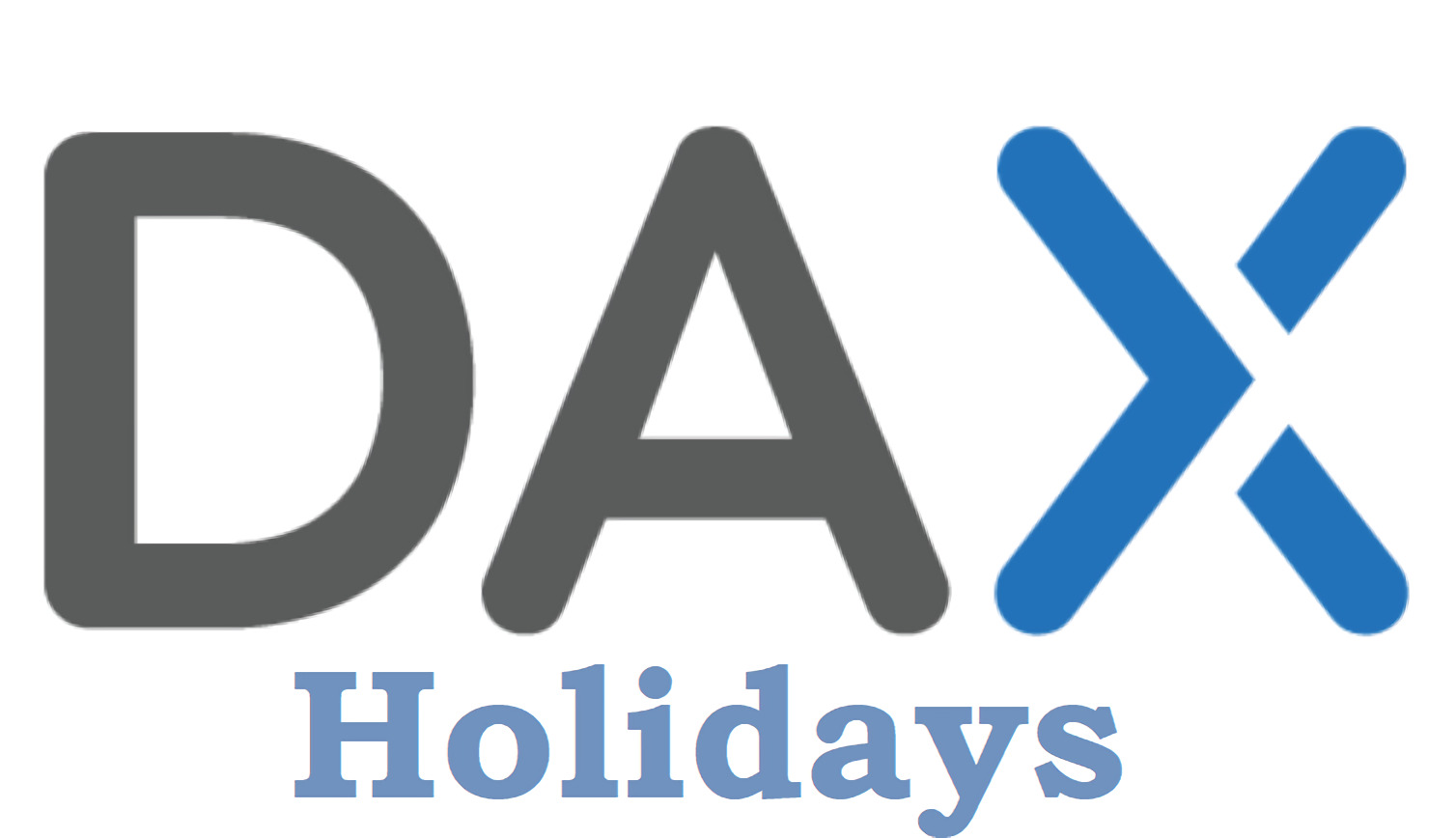Trading Holidays on DAX
| DAY | DATE | HOLIDAY |
| Sunday | Jan. 01, 2023 | New Year’s Day |
| Friday | Apr. 07, 2023 | Good Friday |
| Monday | Apr. 10, 2023 | Easter Monday |
| Monday | May 01, 2023 | Labor Day |
| Monday | May 29, 2023 | Whit Monday |
| Sunday | Dec 24, 2023 | Christmas Eve |
| Monday | Dec 25, 2023 | Christmas Day |
| Sunday | Dec 31, 2023 | New Year’s Eve |
Deutscher Aktienindex DAX (German Stock Index) Holidays 2023
What investors need to know about holidays on DAX Exchange
The Deutscher Aktienindex (DAX) is a German blue-chip stock market index that measures the performance of the top 30 companies listed on the Frankfurt Stock Exchange. The DAX is one of the most important indices in Europe and a key benchmark for investors around the world. As we approach the new year, it’s essential for traders and investors to be aware of the DAX holidays for 2023, so they can plan their trading activities accordingly.
In 2023, the Frankfurt Stock Exchange will be closed for a total of 10 public holidays. These holidays are:
- New Year’s Day: Sunday, January 1
- Good Friday: Friday, April 14
- Easter Monday: Monday, April 17
- Labour Day: Monday, May 1
- Ascension Day: Thursday, May 25
- Whit Monday: Monday, June 5
- German Unity Day: Monday, October 3
- Christmas Day: Monday, December 25
- Boxing Day: Tuesday, December 26
It’s important to note that trading activity on the DAX is typically lower on public holidays, and liquidity may be affected. As a result, traders should take this into account when planning their trading activities and adjust their strategies accordingly. In addition to public holidays, traders should also keep an eye on other events that can affect the stock market, such as economic data releases, geopolitical events, and company earnings reports.
The DAX is a popular index among traders due to its liquidity and volatility. It includes some of the largest and most influential companies in Germany, such as BMW, Siemens, and Deutsche Bank. The DAX is also closely watched by investors around the world, as it provides insights into the health of the German economy and the broader Eurozone.
Traders who are new to the DAX should familiarize themselves with the index’s composition and trading rules. The DAX is a capitalization-weighted index, which means that the weight of each component company is based on its market capitalization. The index is also calculated in real-time, which allows traders to execute trades quickly and efficiently.
In conclusion, the DAX holidays for 2023 provide traders and investors with a clear schedule of days when the Frankfurt Stock Exchange will be closed. By planning their trading activities around these holidays, traders can avoid any unexpected disruptions to their trading activities and ensure that they have sufficient liquidity to execute their trades. However, traders should always remember that trading involves risk, and they should always conduct thorough research and analysis before making any investment decisions.


